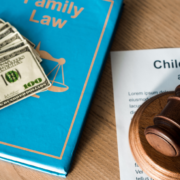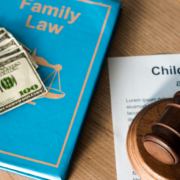In October 2024, a class action lawsuit was filed against 40 private American universities — including Harvard, Northwestern, and Yale — alleging that they conspired to charge students more tuition than they should have. The lawsuit claimed these institutions did this by asking for and considering the assets of non-custodial parents when calculating financial aid and scholarships for children of divorce, putting them at a decided disadvantage.
This legal claim highlighted the ongoing confusion surrounding divorce and paying for college. If you and your spouse are preparing to split, make sure you understand the legal obligations of divorced parents when covering tuition down the line.
Discover what you need to know below.
The Importance of Coming Up With Tuition Agreements in Divorce Settlements
Paying for college is often the last thing on parents’ minds when divorcing. In some instances, it is such an afterthought that they don’t bother including it in their divorce settlements at all.
However, parents should avoid making this mistake at all costs. While divorcing, they must negotiate child custody agreements, and college expenses should be discussed. They should talk about:
- Which parents will pay tuition
- Which types of schools they will encourage their kids to attend
- How far away they would like these schools to be
- How they will handle extra fees and expenses
They should also consider setting up 529 college savings plans and negotiating potential child support extensions for higher education.
Key Factors To Consider When Deciding Who Pays for Higher Education After a Divorce
As parents working through divorces make critical decisions about paying for college for their children, they should consider several key factors. These are the factors they must keep in mind:
- Their respective financial situations
- Children’s academic performances
- Possible financial aid opportunities
Generally speaking, parents should also be prepared to prioritize their kids’ needs and aspirations.
Why Divorced Parents Must Continue Working Together and Discussing Tuition
No matter how hard parents work to agree on who will pay for college, so much might change between the finalization of their divorce and their children’s first day away at school. For this reason, they must commit to continuing to work together in the coming years to collectively create plans for paying for college.
They should discuss filling out the Free Application for Federal Student Aid (FAFSA), which nearly 60% of prospective college students complete as they prepare to graduate from high school. They should also explore the possibility of applying for financial aid for specific schools their kids would like to attend.
This will keep them on the same page, taking advantage of available financial assistance as they seek to support their children in their quest for higher education.
Call Us for More Information on Paying for College for Kids Following a Divorce
Paying for college is more expensive than ever. This is reason enough for parents preparing to divorce to hold extensive discussions about who will be financially responsible for covering their children’s higher education costs.
The trusted attorneys at Karen Ann Ulmer, P.C., will assist you in every aspect of your divorce. Contact us at (866) 309-3307 today to schedule a confidential consultation.












